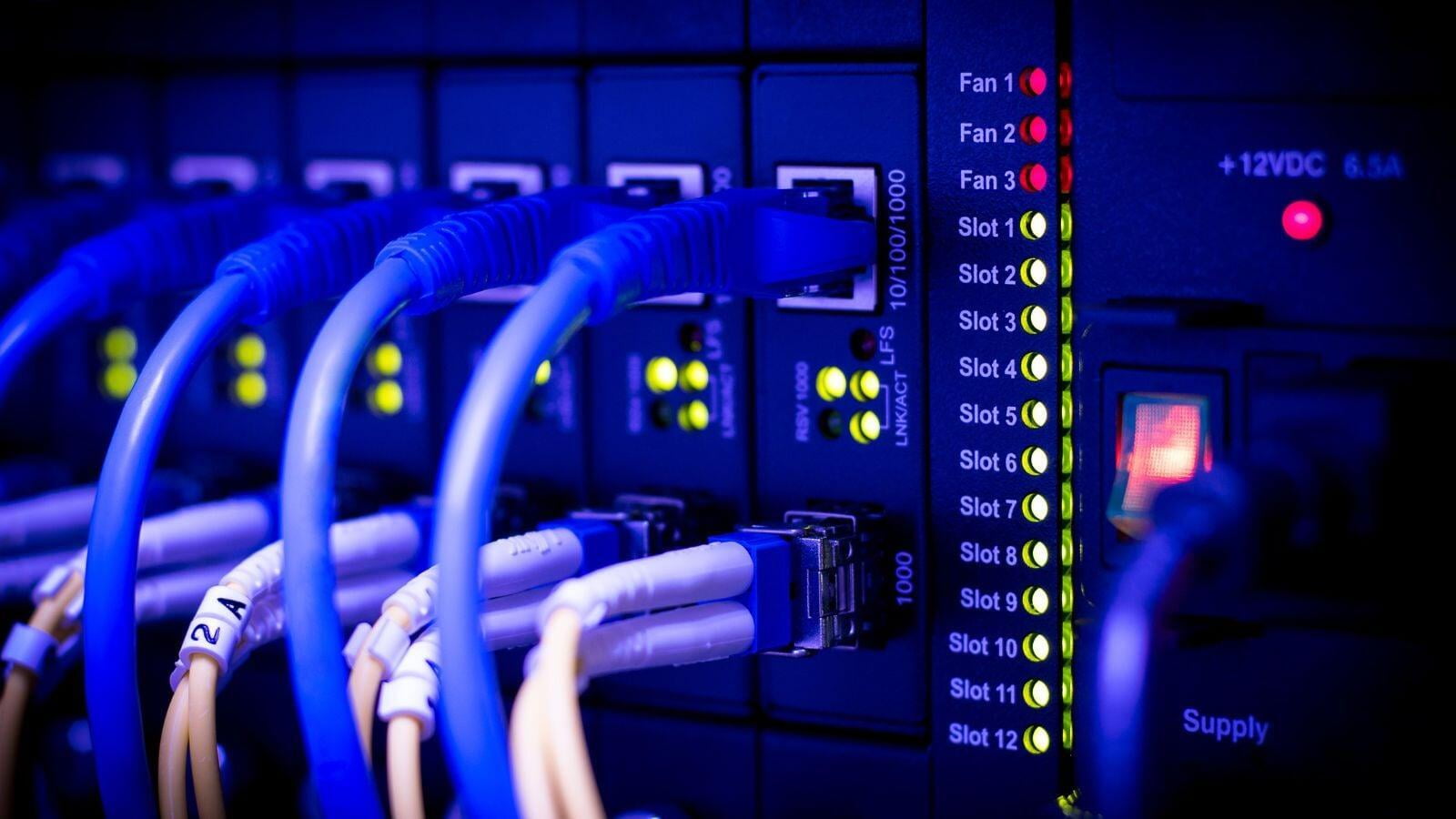
The majority of modern networks must have Fiber Optic Cables because they provide fast, dependable connectivity for everything from small and large-scale infrastructure to personal computers. Fiber cables have a number of advantages over conventional copper cables, including better security, future-proofing, and faster speeds over greater distances. They are made of long, thin strands of glass that are covered in a protective plastic coating. In this article, we will look at the advantages of fiber optic cables and why so many companies and organizations are choosing to use them. We will also go over how crucial it is to select the best partner for your fiber networking requirements as well as how Annexus Technologies can meet those requirements with cutting-edge solutions.
Advantages of Fiber Vs. Copper Cables
Security: One of fiber optic cables' most important benefits is their improved security. Fiber cables don't emit any energy, making it much more challenging to eavesdrop on traffic than copper cables, which emit electromagnetic signals that can be intercepted by hackers. Because of this, fiber is a desirable option for businesses that demand the highest standard of data security.
Future-proof: Fiber cabling is also capable of supporting future traffic growth, allowing networks to keep pace with it. Contrary to copper cables, which need to be upgraded for higher speeds, fiber cables are capable of handling gigabit, 10G, or 100G speeds, making network upgrades much easier and less expensive without the need to replace cabling.
Distance: Fiber has the ability to transmit data over much greater distances than copper, which is another key benefit. It is simpler and less expensive to deploy in large buildings and campuses because fiber cable distances can vary from 1,500 feet to several miles, depending on the type.
Speed & Reliability: Fiber is also resistant to electrical noise in electrically noisy environments, such as that produced by machinery and fluorescent lights. Fiber also has fewer compatibility issues than copper, which makes it simpler to guarantee error-free high-speed data transfer.
Fiber vs. Copper Cost Comparison
Although installation costs for fiber cabling were previously higher than for copper; as demand has grown, manufacturing costs have decreased. The overall setup costs of fiber networking are higher than copper, though, because optical transceivers are needed to "light up" the fibers. But after they are set up, it is simple to switch out the transceivers for larger-capacity models without having to replace the cables. Therefore, compared to an equivalent copper network, operational costs with fiber are typically lower over the long term.
Benefits of Fiber Optic Technology
The advantages of fiber optic cables over conventional copper cables are numerous. The following are a few of the most important benefits:
Higher Speeds: Compared to copper cables, fiber optic cables can transmit data at much higher speeds. This is so that light can move through fiber at almost the speed of light, whereas copper can only conduct electricity at a very slow rate. While copper is only capable of about 10 Gbps of speed, fiber can deliver up to 100 Gbps or more.
Greater Bandwidth: Compared to copper cables, fiber optic cables have a much higher bandwidth. They can now carry more data at once, thanks to this. Fiber is quickly replacing other connectivity options for businesses and organizations as more and more devices and applications call for high-bandwidth connections.
Longer Distances: Compared to copper cables, fiber optic cables can transmit data over much greater distances. Copper cables experience signal degradation over distance, which means the signal gets weaker the farther it travels. Contrarily, fiber can transmit signals over distances of hundreds of kilometers without suffering any signal quality loss.
Improved Security: Due to electromagnetic interference, copper cables are susceptible to data loss or corruption. Fiber optic cables are resistant to this kind of interference, increasing their security and decreasing their vulnerability to hacking.
Future-Proofing: Fiber optic cables have a long lifespan. They are capable of meeting the requirements of high-bandwidth applications today and are prepared for the even higher requirements of the future. Businesses can future-proof their networks and avoid expensive upgrades by choosing fiber.
Choosing the Right Partner for Your Fiber Networking Needs
Despite the fact that fiber has many advantages over copper, it's crucial to pick the right partner for your fiber networking requirements. At Annexus Technologies, we provide a variety of Fiber Networking Solutions that are crafted to satisfy the individual requirements of our clients. When selecting a fiber networking partner, keep the following factors in mind:
Expertise: Search for a partner with extensive knowledge of fiber networking solutions. Our team of skilled engineers and technicians at Annexus Technologies specializes in creating and implementing unique fiber networking solutions for companies and organizations of all sizes.
Reliability: It is crucial to select a business partner you can trust to deliver high-quality goods and services. For clients in a variety of industries, Annexus Technologies has a track record of providing dependable and high-performing fiber networking solutions.
Support: Look for a partner that provides thorough support services, such as maintenance and troubleshooting. At Annexus Technologies, we provide ongoing support and maintenance services to guarantee that the fiber networking solutions for our clients continue to operate at their peak performance over time.
Do not settle for outdated copper networks that can slow down your business operations. Partner with Annexus Technologies today and take advantage of the many benefits of fiber optic networking.
Contact us now to learn more about our Fiber Networking Solutions and how we can help your business thrive with reliable, high-speed connectivity.
